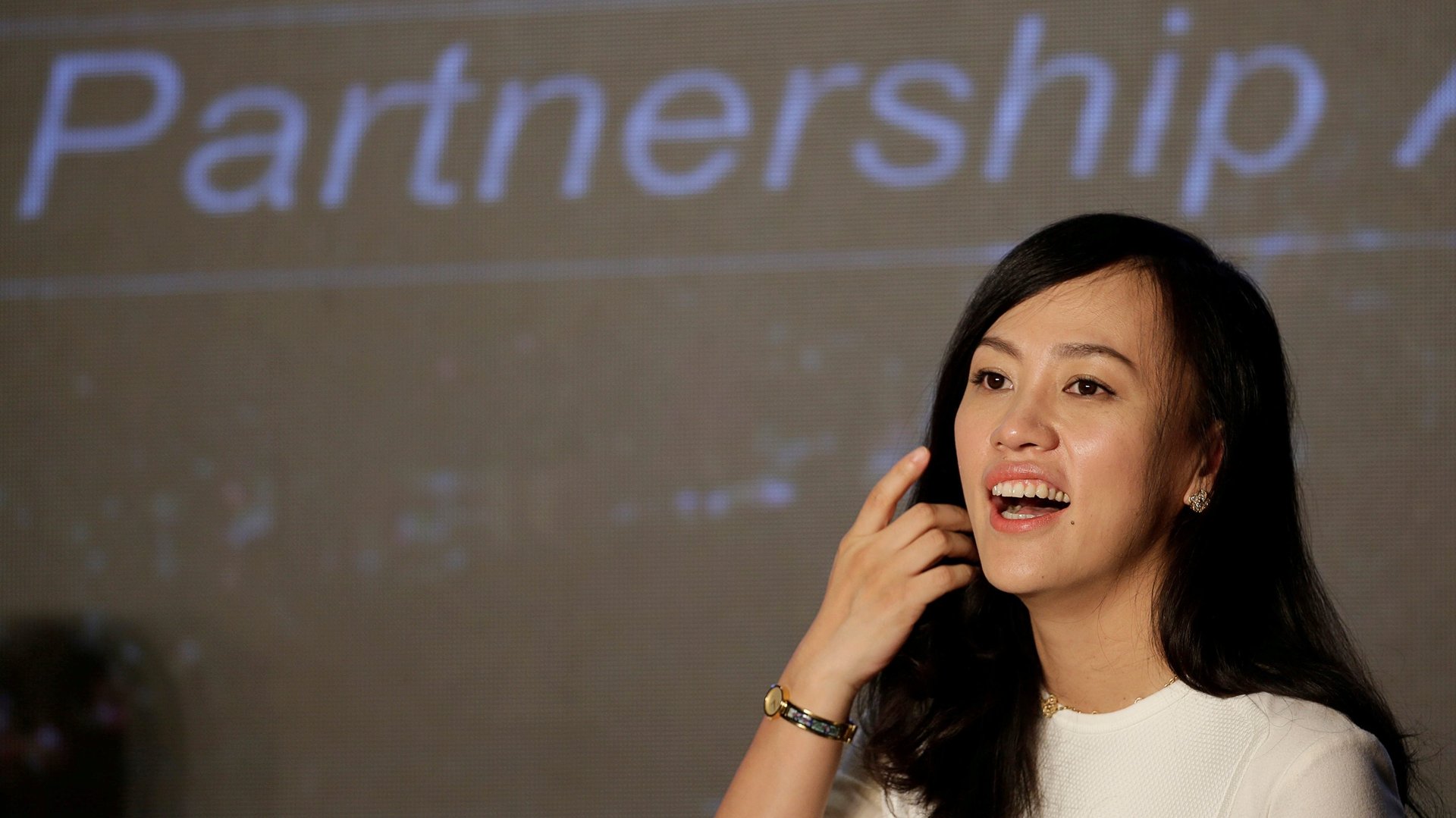What Travis Kalanick could have learned from the woman running China’s Uber
Jean Liu is president of Didi Chuxing, the ride-sharing behemoth that dominates China’s market. Her dealmaking acumen and collaborative approach to competition is also the antithesis of former Uber CEO Travis Kalanick’s aggressive, take-no-prisoners style of business.


Jean Liu is president of Didi Chuxing, the ride-sharing behemoth that dominates China’s market. Her dealmaking acumen and collaborative approach to competition is also the antithesis of former Uber CEO Travis Kalanick’s aggressive, take-no-prisoners style of business.
Liu has made her mark by negotiating complex deals that align seemingly intractably opposed forces. When she first appeared on the ride-sharing scene in 2014, after 12 years at Goldman Sachs, her task was to hammer out a deal merging her company, Didi Dache, with its chief rival in the local market, Kuaidi Dache. She did this successfully, halting the war of attrition between the two and setting the stage for a united front, then worth $6 billion, against Uber’s entry to the mainland.
Two years later, Liu was faced with another intractable problem: How to craft a deal with Uber that could at least appear to benefit both parties. She delivered again, with a merger announced between Uber’s China operations and Didi last August. Even Kalanick had to adopt a gracious tone in defeat, writing in a blog post: “I have no doubt that Uber China and Didi Chuxing will be stronger together.”
Contrast that with how Kalanick handled the potential acquisition of its rival in the US, Lyft, in 2014. He and his top lieutenant Emil Michael, who was forced to leave the company just weeks ago, belittled and ridiculed Lyft’s president for an hour when the two companies met to discuss a potential deal, according to a recent New York Times profile (paywall) of Kalanick.
Liu’s egalitarian approach isn’t limited to Uber. She mentors, rather than tries to crush, her competitors. Take her approach toward Grab, a dominant force in ride-sharing in Southeast Asia. Grab’s founder Anthony Tan has praised the sense of camaraderie and advice he receives from Liu. “There’s this sense of brotherhood, that we’re in this battle together, let’s show them the power of Asia. It’s so inspirational,” he told a conference in Kuala Lumpur.
Kalanick also has a knack for making powerful enemies. The same New York Times story revealed that Kalanick clashed with Apple chief executive Tim Cook. Uber was tracking iPhone users who had deleted the app, violating Apple’s privacy guidelines. To make matters worse, it was covering it up, which incensed Apple’s management. Cook issued Kalanick an ultimatum to stop its privacy violations or be removed from the Apple App Store.
Cook treats Didi very differently. He has talked it up, writing an article for Time magazine arguing that its data analysis ability could make traffic jams obsolete—not to mention the $1 billion that Apple invested in the firm. The article, by the way, was a laudatory text for Jean Liu’s inclusion on Time’s list of most influential people.
Of course, Cook’s interest in Didi is driven in part by the importance of Chinese consumers to Apple. And the Chinese market has very different dynamics than others around the world. But Kalanick’s departure shows that there’s a way to lead a ride-sharing company to spectacular success without taking the Kalanick approach to business.